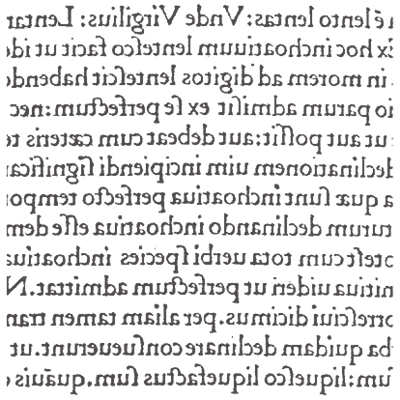Peace, respite, joy
For our readers and authors, our wish is time flowing at a gentle pace. With your nearest and dearest (human and non-human), far away from the computer screen. We will return in the New Year.

Goods and technologies for military use: licensing obligations
In Poland, manufacturing and trading in technologies and devices for military or police use is a strictly regulated economic activity requiring a licence. But simply obtaining a licence is not the end of contacts with regulators. Changes in corporate authorities and some changes in ownership require notification to the relevant authority. Failure to comply with the notification obligation may lead to restriction or even revocation of the licence.

30 years of legal research: From newspaper clippings to the internet
An interview with Ewa Bernaciak, legal information specialist at Wardynski & Partners, who remembers what legal research was like, and how time-consuming it was, in the pre-internet era.

Investments and Investment Aims of the Three Sees Initiative Investment Fund
The Three Seas Initiative (“3SI”) is a regional cooperation initiative lunched in 2015 by presidents of Poland and Croatia. Currently, its members are the 13 member states situated between the Adriatic, Baltic, and Black Seas. In 2019, the Three Seas Initiative Investment Fund (“3SIIF”) was launched. It will invest in projects related to energy, transportation, and digital infrastructure to strengthen economic ties and reduce development disparities within the region. Fund members committed to invest at least EUR 913 million.
Freeriding isn’t allowed in an alliance, but neither is bullying and humiliating your allies
Donald Trump has caused uproar in Europe by his comments that the US under his lead would not come to the rescue of NATO states that are not contributing enough financially to NATO’s defence capacity. This is not the first time he has said such things, and he made similar suggestions when he was the sitting president. This time he added some unhinged and provocative comments about how he would actually encourage Russia to do “whatever the hell it wants” with non-paying NATO member states. But leaving aside this appalling style and all antipathies, let’s consider if he has a point in law.

Joy, peace, optimism
To our readers and authors, our wishes for a Merry Christmas and a Happy New Year. We will return in 2024.

Wardyński & Partners helps organise competition for the Prof. Irena Wiszniewska-Białecka Prize
Submissions are open for the first edition of the Jerzy Wiszniewski Foundation’s competition for an outstanding scholarly work on trademark, competition or antitrust law.

5th Future-Ready Lawyer report
Wolters Kluwer has published its fifth report on the changes, opportunities and challenges lawyers face around the world. This year’s survey included 700 lawyers working in law firms, legal departments and consulting companies in Belgium, France, Germany, Hungary, Italy, the Netherlands, Poland, Spain, the United Kingdom, and the United States. What are its implications?

Business law firms in a time of paradigm shift
An ability to predict is probably one of the oldest human desires. Many people make predictions, but few are right. And if they are, they can rarely explain why they are right. If a prediction proves right, it is usually by coincidence. What does work is diligent observation of the surroundings, taking into account all relevant dimensions, and an ability to spot symptoms of a new reality on the “event horizon” before others.
The dispute over the Polish judicial system and the security of legal rulings: On the common-law de facto doctrine of judicial competence
The legal chaos into which the Polish judicial system has been plunged generates huge practical problems and threats to the security of legal rulings. It casts into doubt the legality of hundreds of judicial appointments and the validity of thousands and thousands of rulings on which commercial and social life are based. One way to contain these threats could be the principle functioning in common-law countries known as the “de facto doctrine,” which under certain conditions allows the acts of judges and officers who were unlawfully appointed to be deemed nonetheless valid. Outside the common law, this doctrine could also be inferred from the constitutional principle of the rule of law as well as the fundamental principles of EU law.

2021 Yearbook
It would be tempting to say that we are publishing this Yearbook in an entirely different world than the previous edition. But the question is whether the world has actually changed, or we simply find ourselves living in different circumstances.

EU–China Strategic Outlook
Two of the world’s greatest powerhouses, the European Union and China, are linked by an enduring relationship with close trade and economic ties. Both are committed to a comprehensive strategic partnership, and both share commitments and interests in global sustainable development.
